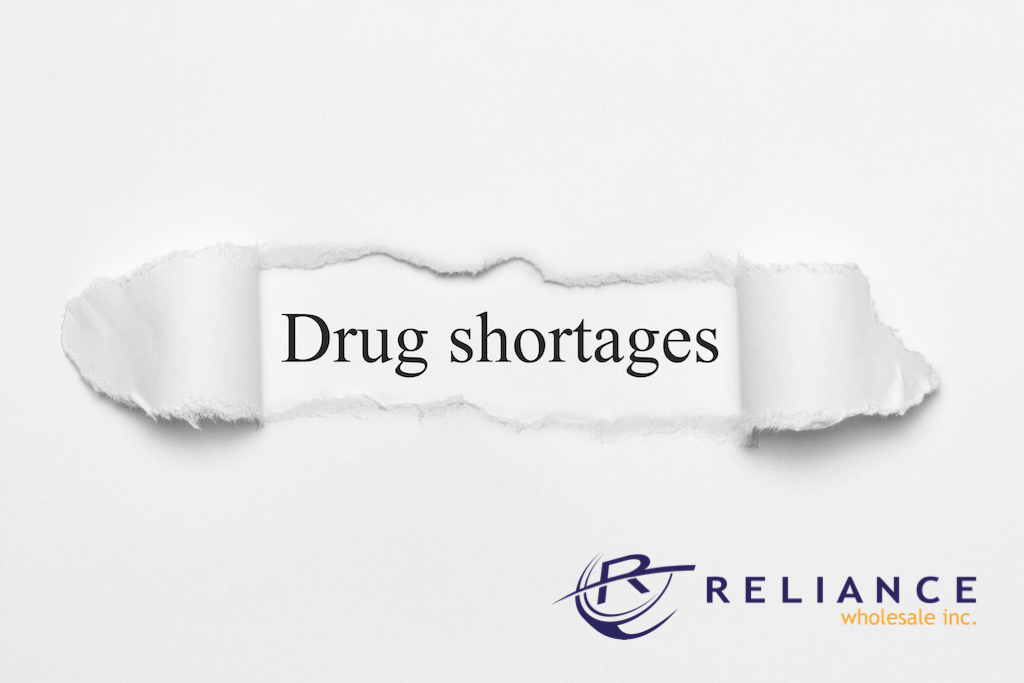
In recent years, drug shortages have emerged as a critical issue affecting healthcare systems worldwide. From lifesaving medications to everyday prescriptions, the scarcity of drugs has placed tremendous pressure on healthcare providers, pharmacies, and patients alike. At Reliance Wholesale, our role is pivotal in managing these supply challenges and ensuring that essential medications reach the hands of those who need them the most.
In this article, we’ll explore how we help address drug shortages and keep the supply chain flowing.
What Causes Drug Shortages?
Drug shortages can occur for a variety of reasons, including:
- Manufacturing delays or disruptions: Problems with raw materials, equipment malfunctions, or quality control issues can halt production.
- Regulatory hurdles: Stricter regulations and recalls by health authorities can delay or halt the availability of certain medications.
- Supply chain disruptions: Natural disasters, geopolitical instability, or transportation bottlenecks can delay the shipment of drugs.
- Economic factors: A decline in the profitability of manufacturing certain drugs can lead to reduced production or even discontinuation.
These factors create a ripple effect across the healthcare system, making it difficult for pharmacies and hospitals to maintain an adequate supply of essential medications. This is where pharmaceutical wholesalers play a vital role.
The Role of Wholesalers in Managing Drug Shortages
Pharmaceutical wholesalers are the bridge between manufacturers and healthcare providers, ensuring that medications are efficiently distributed throughout the supply chain. Here’s how we help mitigate drug shortages:
- Real-Time Inventory Management
One of the most significant ways wholesalers help manage shortages is through advanced inventory management systems. By leveraging real-time data analytics, we can monitor stock levels and identify early warning signs of supply disruptions. This allows wholesalers to act quickly and reroute existing inventory to areas with the greatest demand. - Diversified Supplier Networks
Wholesalers often work with multiple suppliers to reduce the risk of relying on a single manufacturer for essential medications. If one supplier faces production issues or delays, wholesalers can tap into alternative sources to ensure a steady flow of drugs. This diversification helps stabilize the supply chain during times of crisis or unexpected shortages. - Strategic Stockpiling
To prepare for potential shortages, many pharmaceutical wholesalers maintain safety stock or strategic reserves of critical medications. These stockpiles are carefully managed and rotated to ensure they remain within expiration dates, providing an emergency supply that can be deployed in times of need. - Efficient Distribution Networks
Wholesalers operate sophisticated distribution networks that can quickly and efficiently deliver medications to pharmacies, hospitals, and healthcare providers. During a shortage, wholesalers prioritize the allocation of critical drugs to areas where they are most needed, helping to minimize the impact on patient care. - Collaboration with Manufacturers and Regulatory Bodies
Pharmaceutical wholesalers work closely with drug manufacturers and regulatory agencies to address shortages. By maintaining open lines of communication, wholesalers are often the first to know about potential supply disruptions and can collaborate with manufacturers to find alternative solutions or expedite production. Additionally, wholesalers can help navigate the regulatory landscape, ensuring that drugs reach the market as quickly as possible after a disruption.
How Wholesalers Adapt to Prolonged Shortages
During prolonged drug shortages, wholesalers implement specific strategies to minimize the impact on the healthcare system:
- Equitable Allocation: When supply is limited, wholesalers use data-driven allocation models to distribute medications fairly and equitably to ensure that no single region or provider is left without critical drugs.
- Communication and Support: Wholesalers provide regular updates to healthcare providers, offering transparency regarding expected supply levels, timelines, and alternative treatments when possible. This communication helps healthcare professionals manage patient expectations and make informed decisions.
- Innovative Solutions: In some cases, wholesalers partner with manufacturers to accelerate production or find alternative drugs that can substitute for those in short supply. By staying ahead of market trends and maintaining a proactive approach, wholesalers contribute to long-term solutions for drug shortages.
The Importance of Collaboration
Addressing drug shortages requires a collaborative effort across the entire supply chain, from manufacturers and wholesalers to healthcare providers and regulatory agencies. Wholesalers serve as a crucial link, ensuring that the supply chain remains agile and responsive to disruptions. By working together, we can reduce the frequency and impact of drug shortages, safeguarding patient care and improving access to essential medications.
Reliance Wholesale plays an indispensable role in managing and mitigating drug shortages. Through advanced inventory management, diversified supplier networks, strategic stockpiling, and efficient distribution, we ensure that healthcare providers have access to the medications they need, even during challenging times. As the healthcare landscape continues to evolve, wholesalers will remain at the forefront of maintaining a stable and reliable drug supply for all.
If you are a healthcare provider or pharmacy facing supply challenges, reach out to us to learn more about how we can help you navigate drug shortages and ensure consistent access to essential medications.


